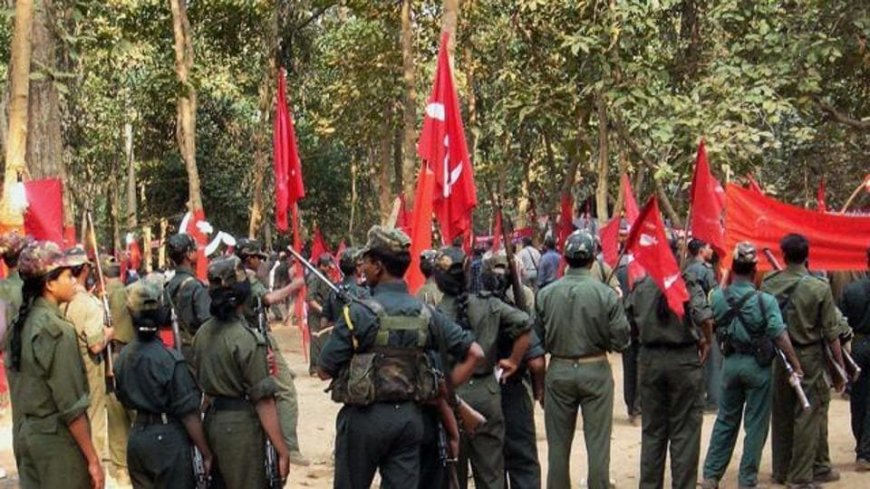Addressing Maoist Violence in Chhattisgarh: A Libertarian Perspective
This article examines the Maoist violence in Chhattisgarh, advocating for a libertarian approach to address the underlying socio-economic issues contributing to the conflict. By promoting economic development, decentralizing power, enhancing personal liberties, and encouraging community engagement, the article argues for sustainable solutions that can lead to long-term peace.

The ongoing conflict with Maoist groups in Chhattisgarh represents a complex and multifaceted issue that demands careful analysis and thoughtful solutions. With the region experiencing significant violence, particularly against security forces and civilians, the challenge is to address the root causes of this violence rather than merely focusing on military intervention. A libertarian approach can provide insights into how to effectively tackle these challenges through economic development and the enhancement of personal liberties.
Understanding the Conflict

The Maoist insurgency in Chhattisgarh has been a longstanding issue, driven by various factors, including poverty, land displacement, and lack of access to basic services. Maoists often exploit these grievances to recruit individuals, presenting themselves as champions of the marginalized. According to reports from sources like The Times of India and Hindustan Times, the violence has led to significant loss of life and has hindered development efforts in the region .
A Libertarian Approach
Libertarianism emphasizes individual freedom, personal responsibility, and minimal government intervention. In the context of Chhattisgarh, this perspective advocates for addressing the underlying socio-economic issues that contribute to the Maoist insurgency. Here are several ways a libertarian approach could be applied:
-
Economic Development: Promoting local entrepreneurship and sustainable economic opportunities can empower communities. By providing the necessary resources and support for small businesses, local economies can thrive, reducing reliance on insurgent groups for economic support. A focus on job creation can alleviate poverty, which is a significant driver of discontent.
-
Decentralization of Power: Empowering local governments to make decisions tailored to their communities can improve governance. When local leaders understand the specific needs and challenges of their constituents, they can implement more effective policies that resonate with the population, reducing the appeal of Maoist ideologies.
-
Enhancing Personal Liberties: A libertarian framework encourages the protection of individual rights and liberties. Ensuring that citizens have access to education, healthcare, and legal representation can empower them to make informed choices, reducing the likelihood of recruitment by extremist groups.
-
Community Engagement: Encouraging dialogue between the government and local communities can help rebuild trust. Initiatives that involve local stakeholders in decision-making processes can foster a sense of ownership and responsibility, which is crucial for long-term peace and stability.
Challenges Ahead

While a libertarian approach offers potential solutions, challenges remain. The ingrained nature of the conflict and the complexities of local dynamics require careful implementation of these strategies. Moreover, addressing the immediate security concerns while promoting long-term solutions is essential. The state must find a balance between security operations and developmental initiatives to create a sustainable peace.
Conclusion
The Maoist violence in Chhattisgarh is a symptom of deeper socio-economic issues that require thoughtful and compassionate solutions. A libertarian approach that prioritizes economic development, personal liberties, and community engagement can address the root causes of this conflict. By fostering an environment of opportunity and empowerment, the government can work towards a more peaceful and prosperous future for the people of Chhattisgarh.
FAQs on Maoist Violence in Chhattisgarh
1. What are the main causes of Maoist violence in Chhattisgarh?
The main causes include poverty, land displacement, lack of access to basic services, and political disenfranchisement. Maoist groups exploit these grievances to recruit members and justify their actions.
2. How can a libertarian approach help resolve the conflict?
A libertarian approach focuses on economic development, decentralization of power, enhancing personal liberties, and community engagement to address the root causes of violence rather than relying solely on military intervention.
3. What role does economic development play in this context?
Economic development can empower communities, create jobs, and reduce poverty, diminishing the appeal of insurgent groups. Supporting local entrepreneurship is crucial for long-term stability.
4. What challenges does this approach face?
Challenges include the entrenched nature of the conflict, local dynamics, and the need to balance immediate security concerns with long-term development strategies.
What's Your Reaction?




















































